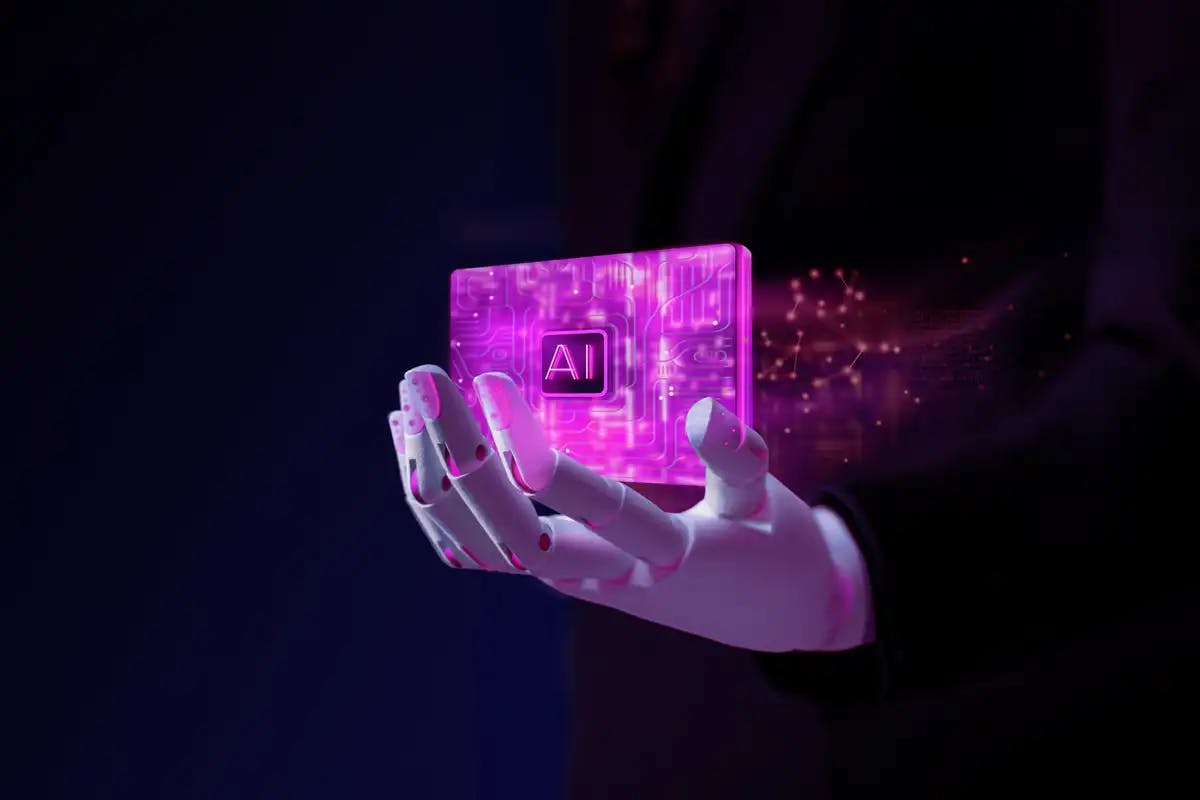


Making mobile apps has gotten way better because of smart computer tech called AI. The AI stuff has changed how applications work and mak them better and personal for people. AI, apps can do hard things, make smart choices, and change based on what people like right away. This blog article contains how AI is used to create apps, shows real examples, talks about the good things it does, and guesses what AI might do for apps in the future.
Making mobile apps has gotten way better because of smart computer tech called AI. The AI stuff has changed how applications work and mak them better and personal for people. AI, apps can do hard things, make smart choices, and change based on what people like right away. This blog article contains how AI is used to create apps, shows real examples, talks about the good things it does, and guesses what AI might do for apps in the future.
AI is important for making applications better nowadays. AI can help applications look at lots of information, find patterns, and make smart guesses. This helps developers make apps that can understand how people talk and that will know what things are, suggest stuff, and even learn from what people do. AI integration into mobile apps, developers can enhance user experiences, automate routine tasks, and deliver personalized content. This opens up opportunities for businesses and individuals and that will enable them to create smarter and more intuitive mobile applications with AI technology.
Companies like Netflix and Spotify leverage AI algorithms to provide personalized recommendations based on user’s preferences, viewing history, and listening habits. These apps analyze user behavior and use AI to suggest relevant movies, shows, or songs, creating a highly personalized experience.
Netflix
Netflix is a leading entertainment streaming platform that leverages AI algorithms to provide personalized recommendations to its users. By analyzing a user’s viewing history, ratings, and preferences, Netflix‘s recommendation system suggests movies and TV shows tailored to individual tastes. The AI algorithms take into account various factors, such as genre preferences, viewing patterns, and similar user behavior, to provide accurate and engaging recommendations. This personalized approach enhances the user experience, keeping viewers engaged and facilitating content discovery.
Voice-activated virtual assistants like Siri, Google Assistant, and Amazon Alexa are prime examples of AI-powered mobile apps. They use natural language processing and machine learning techniques to understand and respond to user voice commands, perform tasks, and provide relevant information.
Siri
Siri, developed by Apple, is an AI-powered virtual assistant that is integrated into iOS devices. Siri uses natural language processing and machine learning techniques to understand and respond to user voice commands, perform tasks, and provide relevant information. Users can ask Siri questions, set reminders, send messages, make phone calls, and even control smart home devices, all through voice interaction. Siri’s ability to learn from user interactions and adapt to individual preferences makes it a highly intuitive and convenient virtual assistant.
Mobile apps like Google Lens and Pinterest use AI-powered image recognition technology to identify objects, landmarks, and products. Users can simply point their phone’s camera at an object, and the app will provide relevant information or suggest similar items.
Google Lens
Google Lens is an AI-powered image recognition mobile app developed by Google. By leveraging computer vision technology, Google Lens can identify objects, landmarks, and products captured through a smartphone’s camera. For example, users can point their camera at a flower to learn its species, scan a barcode to get product information, or capture text from an image for translation or search purposes. Google Lens utilizes deep learning models to analyze visual data, enabling users to gather relevant information simply by pointing their device at an object.
Apps like Google Translate utilize AI to translate text from one language to another in real-time. They employ deep learning models to understand the context and nuances of different languages, resulting in accurate translations.
Google Translate
Google Translate is a widely used language translation app that employs AI algorithms to provide real-time translation between different languages. By utilizing neural machine translation models, Google Translate can accurately translate text, phrases, and even entire sentences. The app takes into account the context and grammar rules of both the source and target languages to deliver more accurate and natural translations. With features like offline translation and instant camera translation, Google Translate has become an indispensable tool for communication across language barriers.
Financial apps use AI algorithms to detect fraudulent activities by analyzing user behavior and transaction patterns. By employing machine learning models, these apps can identify suspicious transactions and alert users in real time, enhancing security and protecting against financial fraud.
Kount
Kount is an AI-powered fraud detection platform used by various financial institutions and e-commerce companies. It analyzes vast amounts of transaction data, user behavior patterns, and device information to identify potential fraudulent activities in real time. Kount’s machine learning algorithms continuously learn from new data, enabling them to adapt to evolving fraud patterns and provide accurate risk assessments. By detecting and preventing fraudulent transactions, Kount helps businesses safeguard their customers’ financial information and maintain trust in their platforms.
Mobile app development has experienced significant advancements with the integration of artificial intelligence (AI). AI enables apps to analyze data, make informed decisions, and deliver personalized experiences. Real case studies highlight the effectiveness of AI in various applications, such as personalized recommendations by Netflix, virtual assistants like Siri, image recognition by Google Lens, language translation with Google Translate, and fraud detection by Kount. The benefits of AI in mobile app development include automation, personalized experiences, data-driven insights, improved customer support, enhanced security, and cost savings. As AI continues to advance, it offers immense potential for businesses to create innovative and user-centric mobile apps that cater to evolving needs and preferences.
As the demand for AI-powered mobile apps continues to grow, companies like Codiste are at the forefront of leveraging AI technologies in mobile app development. With expertise in AI and mobile application development, Codiste offers tailored solutions to businesses across industries, enabling them to harness the power of AI and deliver cutting-edge mobile applications that meet their specific needs.




Every great partnership begins with a conversation. Whether you’re exploring possibilities or ready to scale, our team of specialists will help you navigate the journey.